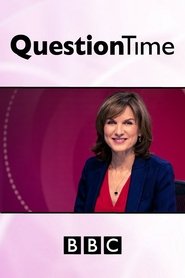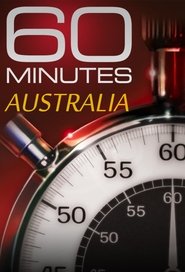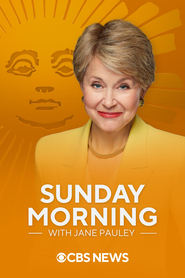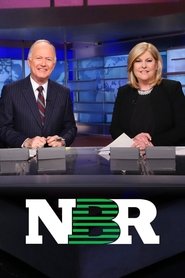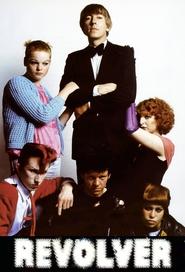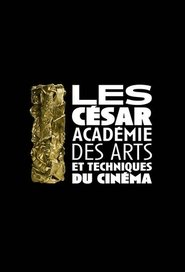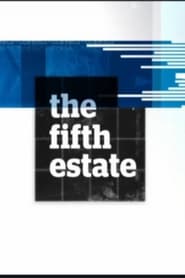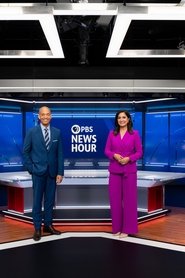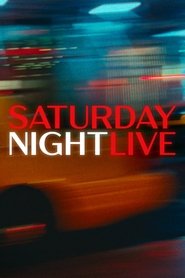New News TV Series on Pantaflix - Page 63
-
Question Time
1979
Question Time
1979
star 5.5This topical debate series based on Any Questions? typically features politicians from at least the three major political parties as well as other public figures who answer pre-selected questions put to them by a carefully selected audience. -
SportsCenter
1979
SportsCenter
1979
star 7.4SportsCenter is a daily sports news television program, and the flagship program of American cable and satellite television network ESPN since the network's launch on September 7, 1979. Originally broadcast only daily, SportsCenter is now shown up to twelve times a day, replaying the day's scores and highlights from major sporting events, along with commentary, previews and feature stories. The show has aired more than 50,000 unique episodes, more than any other program on American television, and is shot in ESPN's high definition studio facilities in Bristol, Connecticut and Los Angeles, California. -
Oyahou Asahi Desu
1979
Oyahou Asahi Desu
1979
A wide-show program aimed at delivering 'morning energy' to viewers in the Kansai region, offering everything from gourmet information to the latest trends and useful daily life tips. -
60 Minutes Australia
1979
60 Minutes Australia
1979
star 6.660 Minutes, an Australian version of the U.S. television newsmagazine 60 Minutes, airs on Sunday nights on the Nine Network and is presented in much the same way as the American program on which it is based. The New Zealand version of the show has also featured segments of the Australian version. Gerald Stone, the founding executive producer, was given the job by Kerry Packer and was told: "I don't give a f... what it takes. Just do it and get it right." After the first episode was broadcast on 11 February 1979, Packer was less than impressed, telling Stone: "You've blown it, son. You better fix it fast." Over the years, Stone's award winning 60 Minutes revolutionised Australian current affairs reporting and enhanced the careers of Ray Martin, Ian Leslie, George Negus, and later Jana Wendt. Since it was first broadcast, 60 Minutes has won five Silver Logies, one Special Achievement Logie, and received nominations for a further six Logie awards. -
CBS News Sunday Morning
1979
star 6.9The sparkling notes of a trumpet fanfare and the familiar logo of the sun alert viewers that it's time for CBS's Sunday morning staple. Journalist Jane Pauley helms the show, taking over hosting duties from Charles Osgood, who spent 22 years on the job. A morning talk show, this program airs at a different pace and focuses much of its attention on the performing arts. After a quick update of the day's news and national weather, correspondents offer longer-length segments on a variety of topics, from architecture to ballet to music to pop culture to politics. -
Nightly Business Report
1979
star 10Nightly Business Report is a Business news television magazine broadcast weeknights on public television stations in the United States. In February 2013, CNBC purchased the show and closed the Miami news operations. Tyler Mathisen joined Susie Gharib as co-host when the show relaunched on March 4, 2013. From 1979 to 2013, the show was produced at WPBT in Miami, Florida. -
Frankenschau
1978
Frankenschau
1978
-
Globo Esporte
1978
Globo Esporte
1978
-
20/20
1978
20/20
1978
star 6.120/20 is an American television newsmagazine that has been broadcast on ABC since June 6, 1978. Created by ABC News executive Roone Arledge, the show was designed similarly to CBS's 60 Minutes but focuses more on human interest stories than international and political subjects. The program's name derives from the "20/20" measurement of visual acuity. The hour-long program has been a staple on Friday evenings for much of the time since it moved to that timeslot from Thursdays in September 1987, though special editions of the program occasionally air on other nights. -
Revolver
1978
Revolver
1978
star 7Revolver is a British music TV series on ITV that ran for one series only, of eight episodes, in 1978. It was produced by ATV. The series producer was Mickie Most, who was inspired to make the programme after he saw an interview with Top of the Pops' producer Robin Nash, in which he boasted that TOTP was a music programme that the whole family could enjoy together. Most set out to make a show which was the antithesis of that, and which featured live music performances most closely related to the then emergent Punk rock and New Wave music scenes - though it also included other more mainstream artists such as Kate Bush, Dire Straits and Lindisfarne. The official host of the programme was Chris Hill, but it is remembered more for the contributions of Peter Cook. Cook played the manager of the fictional ballroom where the show was supposedly taking place, and frequently made disparaging remarks about the acts appearing. -
heute journal
1978
-
Please Turn the Page
1977
-
This Week in Baseball
1977
star 8This Week in Baseball is an American syndicated television series which focuses on Major League Baseball. Broadcast weekly during baseball season, the program features highlights of recent games, interviews with players, and other regular features. The popularity of the program, best known for its original host, New York Yankees play-by-play commentator Mel Allen, also helped influence the creation of other sports highlight programs, including ESPN's SportsCenter. After its original syndicated run from 1977 to 1998, and gaining a revival in 2000 -
Cérémonie des César
1976
Cérémonie des César
1976
star 3.5The César Awards are cinematographic awards created in 1976 and presented annually in Paris to professionals of the 7th art in various categories to recognize the best French productions. They are often cited as the French equivalent of the Oscars in the United States. -
ITV News Channel TV
1976
ITV News Channel TV
1976
ITV News Channel TV is the flagship regional news service on ITV Channel Television, co-produced with the independent production company, Newsline. The news service is produced from the main studios of Channel Television in St. Helier, Jersey. Reporters and camera crews are also based at Channel's Guernsey studios in St Sampson's. Freelance correspondents, camera crews and videojournalists are based on Alderney and Sark. -
The Fifth Estate
1976
The Fifth Estate
1976
star 6.8Each week the fifth estate brings in-depth investigations that matter to Canadians – delivering a dazzling parade of political leaders, controversial characters and ordinary people whose lives were touched by triumph or tragedy. -
PBS News Hour
1975
PBS News Hour
1975
star 5.6America's first and longest running hour-long nightly news broadcast known for its in-depth coverage of issues and current events. -
Saturday Night Live
1975
Saturday Night Live
1975
star 7A late-night live television sketch comedy and variety show created by Lorne Michaels. The show's comedy sketches, which parody contemporary culture and politics, are performed by a large and varying cast of repertory and newer cast members. Each episode is hosted by a celebrity guest, who usually delivers an opening monologue and performs in sketches with the cast, and features performances by a musical guest. -
Inside Michigan Football
1975
Longtime Michigan broadcaster Jim Brandstatter breaks down the previous day's football action with post-game interviews with the players and coaches, along with special features on the University of Michigan. Michigan Replay was the broadcasts of weekly (in season) coach's shows for University of Michigan football and men's basketball. The football Michigan Replay Show went on the air in 1975 with twelve to sixteen programs per year. Larry Adderley was the host from 1975 to 1979. Jim Brandstatter took over starting in 1980. In 2008 the title was changed to Inside Michigan Football. The basketball coach's show was first broadcast in 1990 under the title Michigan Basketball Preview and became Michigan Replay in 1999/2000. The format of the half-hour show was a host and the head coach in a studio setting reviewing the previous weeks games and previewing the upcoming games. Typically there would be one or more guests and often a short topical story. -
Open Up
1975
 Netflix
Netflix
 Amazon Prime Video
Amazon Prime Video
 Apple iTunes
Apple iTunes
 Apple TV Plus
Apple TV Plus
 Disney Plus
Disney Plus
 Google Play Movies
Google Play Movies
 Paramount Plus
Paramount Plus
 Hulu
Hulu
 HBO Max
HBO Max
 YouTube
YouTube
 fuboTV
fuboTV
 Peacock
Peacock
 Peacock Premium
Peacock Premium
 Amazon Video
Amazon Video
 The Roku Channel
The Roku Channel
 AMC+
AMC+
 Kocowa
Kocowa
 Hoopla
Hoopla
 The CW
The CW
 Vudu
Vudu
 Starz
Starz
 Showtime
Showtime
 PBS
PBS
 Pantaflix
Pantaflix
 FXNow
FXNow
 Tubi TV
Tubi TV
 Kanopy
Kanopy
 Comedy Central
Comedy Central
 Crunchyroll
Crunchyroll
 Microsoft Store
Microsoft Store
 Redbox
Redbox
 Sun Nxt
Sun Nxt
 ABC
ABC
 DIRECTV
DIRECTV
 Crackle
Crackle
 Fandor
Fandor
 Plex
Plex
